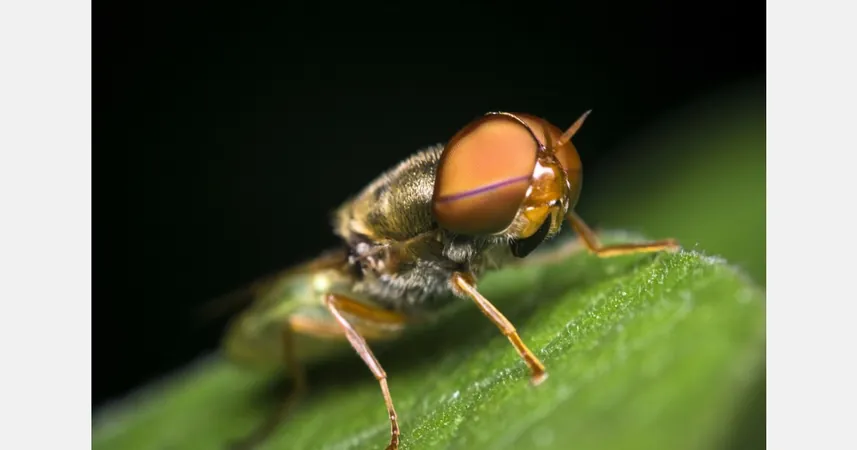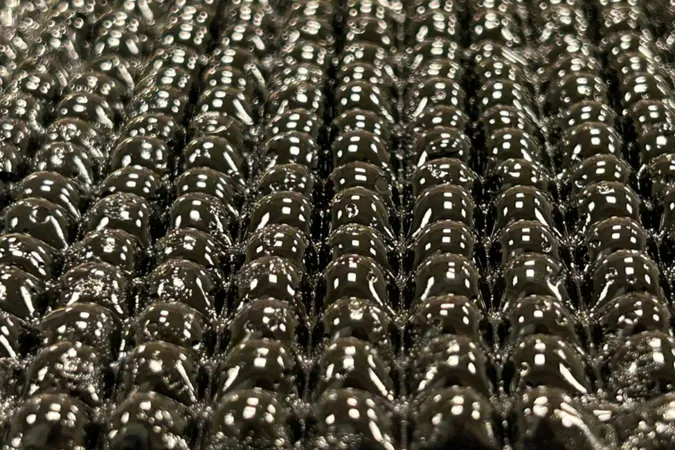
Shocking Discovery: Parasites Manipulate Plant Cells to Seduce Insects!
2025-01-08
Author: Benjamin
In a groundbreaking study, researchers have unveiled how parasitic organisms are capable of altering the genetic makeup of their host plants to attract insects, thereby ensuring their own survival. This phenomenon, known as "extended phenotype," highlights the astonishing influence that parasites like phytoplasmas exert over their hosts, yet the mechanisms behind these genetic manipulations have long remained a mystery.
The Role of SAP54
The focus of the study is a specific virulence protein called SAP54, produced by parasitic phytoplasmas. This protein has been shown to induce the growth of leaf-like flowers in infected plants, a trait that lures in leafhopper vectors, crucial for the parasite's transmission. However, the researchers discovered a surprising twist: while the insects are drawn to the leaves, the leaf-like flowers themselves might not be essential for this attraction. In fact, exposure of the plant's leaves to male leafhoppers was found to play a critical role in this process.
Complex Interactions
The study further revealed that SAP54 orchestrates a complex interaction within the plants: it effectively suppresses stress response pathways when leaves are exposed to male leafhoppers. A particular plant transcription factor, known as the short vegetative phase (SVP), was identified as a key player in this dynamic. By promoting the degradation of SVP, SAP54 increases the vulnerability of the leaves to male leafhoppers, making it easier for them to attract females for mating.
Transformative Implications
This revelation transforms our understanding of plant-insect interactions, positioning SAP54 as a molecular "matchmaker" that helps male leafhoppers more efficiently locate potential partners. The cocktail of plant manipulations facilitated by the phytoplasma not only alters the host plant’s appearance but also influences the behavior of the leafhoppers, creating a perfect storm for further plant colonization by the insects.
Future Insights
The implications of this research are profound, not just for parasitology but also for agriculture and ecological studies. Understanding these genetic transformations may pave the way for developing strategies to manage pests more effectively while revealing the intricate webs of interactions that define ecosystems.
As scientists continue to delve into the genetic intricacies behind this phenomenon, we are left questioning how far-reaching the impacts of such parasitic manipulations truly are. Will this knowledge help us combat the effects of devastating plant diseases, or might it unlock new methods for enhancing crop resilience? Only time will tell, but one thing is clear: nature holds secrets that could forever alter our approach to agriculture and pest management.









 Brasil (PT)
Brasil (PT)
 Canada (EN)
Canada (EN)
 Chile (ES)
Chile (ES)
 Česko (CS)
Česko (CS)
 대한민국 (KO)
대한민국 (KO)
 España (ES)
España (ES)
 France (FR)
France (FR)
 Hong Kong (EN)
Hong Kong (EN)
 Italia (IT)
Italia (IT)
 日本 (JA)
日本 (JA)
 Magyarország (HU)
Magyarország (HU)
 Norge (NO)
Norge (NO)
 Polska (PL)
Polska (PL)
 Schweiz (DE)
Schweiz (DE)
 Singapore (EN)
Singapore (EN)
 Sverige (SV)
Sverige (SV)
 Suomi (FI)
Suomi (FI)
 Türkiye (TR)
Türkiye (TR)
 الإمارات العربية المتحدة (AR)
الإمارات العربية المتحدة (AR)